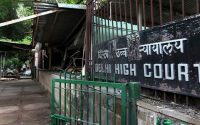$100 Website Offer
Get your personal website + domain for just $100.
Limited Time Offer!
Claim Your Website NowNo water, impossible to build SYL canal: Punjab to Supreme Court
Source:- hindustantimes.com
Depleting water flow makes it impossible to build the Sutlej-Yamuna Link (SYL) canal, said Punjab in the Supreme Court on Thursday, reaffirming a stand that successive governments in the state have taken.
Also, Punjab argued that a 2004 state law that terminated water-sharing agreements with its neighbours was never challenged or declared unconstitutional.
The top court had struck down the law last November during a hearing in which Punjab defended its argument that the project cannot be executed because of decreasing water level.
The court reiterated later that the canal be built, saying: “Whether the water was there or not or it’ll be there only in the rainy season or how much quantity was being maintained could be sorted out later.”
Haryana approached the court in November after Punjab decided to return land acquired from farmers to build its portion of the 212km canal, which has been the source of a 50-year dispute between the neighbours over sharing waters of Ravi and Beas rivers.
Haryana completed in 1980 the 91km of the canal passing through the state.
The state argued on Thursday that the court’s judgment, nullifying the 2004 law, was not binding on it as it was an “opinion” delivered on a presidential reference.
Punjab said its neighbour never challenged the legislation, which took away the basis of the court’s 2002 decree directing the state to build the canal.
“So long as it (the 2004 act) was there, the 2002 decree could not be executed,” the state’s counsel, RS Suri, contended before a bench headed by Justice PC Ghose.
The court agreed to give Suri a chance to establish that its November opinion was not binding, but made it clear that it didn’t expect its 2002 decree to remain on paper. “Our order should be implemented.”
Haryana objected to Punjab’s statement that the 2004 law was never challenged.
Counsel Shyam Divan said: “If one state is forced to challenge the validity of a law passed by another state before the Supreme Court, then the Indian federation is not on a stable course.”
Punjab argued that it was forced to pass the 2004 law because its complaint to the Centre in 2003 about depleting river water wasn’t addressed. There was no response to its request to constitute a water tribunal.
Senior advocate Ram Jethmalani, who represented Punjab, requested the Centre to bring the two states to a negotiating table.
The Centre’s stand supports Punjab. It said the court did not specifically declare the 2004 act invalid.
A formal declaration was required to hold it unconstitutional, solicitor general Ranjit Kumar said. Steps to build the canal could be taken thereafter.
The court fixed March 28 to hear the matter since the arguments remained inconclusive.



